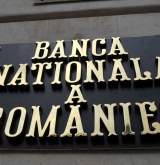There are various possible scenarios for Romanian economy, and implicitly for the most important contributors, namely SMEs that are considered by many specialists in finances as the engine of the economy. “The best-case scenario includes a 2-4% economic growth, which will have to be sustained through financing, the factoring industry being the handiest, easy to access and easy to run. There is also the recession scenario, which many EU states are dealing with already, where SMEs will be those who will suffer the most.
If we take for example other markets, such as United States of America, where the industry experienced these kinds of trends, in order to have a full picture on the extent of the damage over the factoring market in Romania, we may say that factoring as a “full pack” of financing and invoice management was the least affected. “This example (positive) must be looked at with more prudence, as the factoring market in Romania is far from a maturity level as the US market was in the respective periods. We have to learn from their experience, and to try to apply the best-fit solutions for the local industry”, Rosu added.
Estimated at 1.6 billion euros in 2008 (by The International Factors Group – IFG or IF-Group – association of factoring company established in 1963), the factoring market it is tumultuous, both through the fiercer competition between players and the growing number of competitors, and also through the funding solutions it provides to small and medium sized enterprises (the segment that turns to factoring services most often), hampered by the toughened or even blocked lending activity due to the global financial crisis.
“For the first three quarters in 2008, the expectations included a 35-45% advance from 2007, and we registered a higher than-market-average growth in 2008, therefore we have met our expectations for this year”, said Bogdan Rosu.
Moreover, it is hard to foretell the growth pace of the factoring industry in 2009, or whether it will be a growth or not, as insiders explained.
Where could the growth of the factoring market stem from in the future?
The key to the next-year market evolution will be tied to two vital elements, namely access to financing resources and approach of the product.
“Approach of the product, through its features, it is included in easy-to-access and no asset-based financing products. Factoring is and will remain a product whose simplicity makes up a major competitive advantage within the financial products array,” Valentin Chirca, CEO of Factoring Company (Compania de Factoring) told Wall-Street.
The company said it expects 200 million euros worth financing, double from a year earlier.
SMEs, the leading contributors in case of factoring, will likely stimulate the industry and the fact that banks have sharply shrunk loans, the factoring remains one of the few solutions for small and medium sized enterprises in financing. “Not only did the financing costs soar, but granting classic financing to SMEs has lessened, in many cases resorting to reducing the existent credit lines or even their suspension by declining a renewal of the loan”, added Rosu.
Moreover, for Rosu it is clear that asset pledged for banking loans by SMEs have surely lost value now, following a steep downtrend. In these circumstances, when SMEs need additional financing to the one they can obtain in the classic way, they turn to factoring services, Rosu explained, adding that an uptrend of accessing factoring services by SMEs whips into shape, and this tendency will continue “as long as the media channels focus on these services more and promote them in order to educate the market”.
Citeste si:
Calculator Salariu: Află câți bani primești în mână în funcție de salariul brut »
Te-ar putea interesa și:


















































































![HR [PLAY] Tech Workout - 11...](https://www.wall-street.ro/image_thumbs/thumbs/973/973fe0a3888d417feff63de42e814180-260x260-00-65.jpg?v=1714088893)









